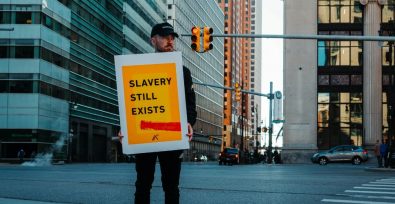Slavery still exists in the United States. That’s not hyperbole—it’s the reality written into the constitutions of many states and, most disturbingly, in the American Constitution itself. The 13th Amendment, often celebrated for abolishing slavery, includes a chilling exception: slavery and involuntary servitude are permissible as punishment for a crime.
For over 150 years, this exception clause has perpetuated a system where incarcerated individuals—disproportionately people of color—are forced into labor for little or no pay. They face threats ranging from solitary confinement to parole denial to restrictions on family contact if they refuse. This isn’t just modern slavery. It’s actual slavery, cloaked in the legalese of punishment. For abolitionists, the fight is far from over, and the outcomes of recent elections highlight the urgent need to rekindle the fire for justice.
Whatever your stance on prison labor—whether you believe it benefits incarcerated individuals or see it as fitting punishment—one truth remains: if you condemn slavery, you cannot condone the exception clause.
The question is not whether incarcerated workers should earn a living wage or even if they should work. The question is stark and uncompromising: do we accept or reject slavery?
Nevada answered decisively by passing Question 4 in the 2024 election, taking a bold step toward ending slavery in all forms. Meanwhile, California—often seen as a progressive trailblazer—failed to pass Proposition 6, which sought to achieve the same goal. How does a state that prides itself on justice and equity fail the abolitionist cause? The answer lies not only in voter confusion or apathy but in the failure to name the issue for what it is: slavery.
Call it what it is
Nevada’s ballot measure explicitly sought to abolish “slavery and involuntary servitude.” California’s Proposition 6, however, omitted the word slavery entirely, instead focusing on “involuntary servitude.” This omission may have blunted its impact, leaving voters without a clear moral imperative.
The abolitionist movement has always understood the power of language. When we call it slavery, we strip away the euphemisms that obscure its brutality. Proposition 6’s failure underscores a critical lesson: people cannot rise against an injustice they don’t fully recognize. That’s why we maintain that this isn’t a prison reform issue. It’s a human rights issue. It’s slavery. And it’s long past time to end it.
Abolition requires action
This isn’t about symbolic gestures. Across the U.S., prisons compel incarcerated individuals to labor under conditions that are exploitative at best and dehumanizing at worst. They fight wildfires, manufacture goods that generate immense profits, and provide essential services, earning pennies per hour—if they’re paid at all. The parallels to historical slavery are glaring, undeniable, and unacceptable.
The fight for abolition is far from over. We cannot rest on past victories or assume that justice will progress without effort. True abolition requires the removal of the exception clause from every state constitution—following Nevada’s lead—and from the U.S. Constitution itself.
This is a call to arms for everyone who believes in the dignity of humanity: stand up, speak out, and demand an end to slavery. Call it what it is. Reject the sanitized language and superficial debates that obscure its existence. Confront the discomfort of its persistence and turn that discomfort into action.
Abolition was never a single victory. It has always been—and remains—a continuous struggle. We owe it to those who fought before us and to those still suffering today to finish what they started. Slavery must end—everywhere, and in all its forms.




